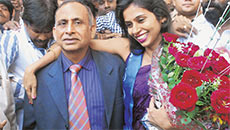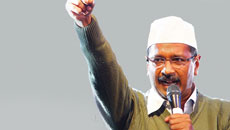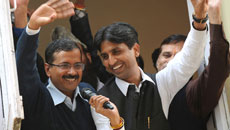The mainstream global history dialogue has focused on the World Wars, the European Holocaust and the bombings of Japan’s Hiroshima and Nagasaki, yet South Asia’s Partition is often overlooked even though Partition affected a significant sized population in 1947. About 1 per cent of the world’s people were uprooted and became refugees due to Partition, millions lost their lives and countless thousands were abandoned or fell prey to human trafficking and sexual violence.
The Partition
The summer of 1947 was unlike any across the sun-baked plains of northern India. Mass communal violence had engulfed cities, and villages had gone up in flames and in some places entire populations were decimated. Millions upon millions were uprooted from their ancestral homes as an unprecedented population exchange took place. The heavens responded too with an uncharacteristically heavy monsoon that year. Flash floods and torrential downpours lashed at an already traumatized sea of humanity. An entire civilization had gone into unfathomable disarray.
That August, Muslim refugees poured into Lahore just as quickly as the Sikh and Hindu inhabitants of the city fled for the newly defined India. One such refugee was an 8-year-old boy named Ali. He had witnessed the massacre of his entire village in Ludhiana District (East Punjab), including his family, by a furious mob that had rounded them up in a courtyard. One gunman shot at him 5, 6, perhaps 7 times, missing each time. Ali suddenly got the nerve to run. He ran fast and right into the knees of another gunman. Quite unexpectedly, the man grabbed him and gently led him away. They walked for two days before Ali was turned over to a Sikh family in a village. Not long after, he was discovered by the Pakistani military, which transported him to Lahore. The refugee camp was a miserable place, he remembers. The air was thick with painful recollections, uncertainty and suspicion. He remained there for a month before being discovered by his extended family.
In a village just west of Lahore, Kanwal was working away in the fields, when he heard a commotion in the distance. Temperatures soared well above 120 degrees and he worked in his undergarments. The sounds seemed to come from his village and grew louder as he stopped to listen: the swishing of swords, screams...then gunshots. It was not long before he was spotted by the mob and they were upon him. There was no time to think. Spade in hand, he ran for his life. He ran for days, hiding in abandoned huts and cornfields by day and travelling by night. Eventually he joined a caravan of refugees fleeing by foot and bullock carts. They were being driven out by force from the land that they had lived on for centuries. Those who survived eventually made it across what was now a new border for independent India and Pakistan. Kanwal arrived alone and bewildered, spade in hand and still wearing only his undergarments.
As the system of governance in British India ground to a halt, a temporary lull in police and military services ensued. Law and order broke down during this transfer of power. Mass violence broke out as an immense population exchange took place and all of northern India went up in arms. Muslims moved into East and West Pakistan (now Bangladesh and Pakistan respectively) while Hindus, Sikhs and others moved to India. It is estimated that within a span of two months, between 10 and 15 million people were forced to leave behind their ancestral homes, while 1 to 2 million people lost their lives. The number of displaced is 20 million and beyond when considering the continued migration into the 1950’s – an astonishing fact when considering the math – about 1 in 100 people in the world at the time were displaced due to Partition! Families with recorded histories and lineages that can go back sometimes over a thousand years were suddenly uprooted and scattered the world over – their ancient histories and connections abruptly severed. Furthermore, perhaps as many as 100,000 women were abducted. About a third were later “recovered” from their captors, but were soon condemned by their families and society in general. Their fate is not known. Countless children were either orphaned or abandoned by their families. Their fate is also not known.
Consequences of Partition
A detailed understanding of this time continues to elude us. So colossal were the circumstances that we have seemingly tried to block Partition out of collective global memory – be it for political rationale, a fear of rehashing old wounds or because we simply cannot wrap our minds around it and it is easier to “move on” and forget. Yet, in many ways, we continue to live in the shadows of that year’s legacy, and will continue to do so unless we take the time to dig deeper and aspire for a fuller understanding. We cannot truly move on and heal an old wound by letting it remain untended.

Despite our lack of awareness and cognizance, it can easily be argued that the consequences of Partition are felt today on the global level, both culturally and politically. The popular debate surrounding Partition however often focuses only on political leaders and nation states. We feel that focus on these limited experiences has obscured the larger narrative, especially because every human is involved in making our story – our history – what it is today. Yet, there is no central source of witness voices for us to directly learn from. On the other hand such works have been carried out for events affecting a similar sized population in Europe (e.g. Holocaust, WWI and WWII) and events affecting a smaller sized population in Japan (e.g. the bombing of Hiroshima and Nagasaki). Partition type violence, genocides and divisions are happening at this very moment, in places such as Central and Western Africa, and will continue to happen unless they are fully understood. Education is the key to possible future prevention. It is within this context that The 1947 Partition Archive (“The Archive”) is working to serve the global community. Education will lead to more informed decision-making among future leaders and those who have the power to impose such boundaries among peoples.
The 1947 Partition Archive (“The Archive”)
By using a crowd-sourced oral history approach to documenting Partition, The Archive aims to give voice to witnesses via digital video, a powerful and easily accessible medium. Those who experienced the events surrounding Partition control a majority of the storytelling. The interviews are immensely revealing and help us obtain a better understanding of the migration paths, the psychological effects, the extent of casualties, the abrupt disruption and decline of an ancient culture and the lost acquaintances and family members.
The oral histories also allow historians to check historical facts. Our model is one that empowers all citizens, ordinary and extraordinary, to record stories from survivors on video and submit them to The Archive for preservation and dissemination. The Archive is set up to provide the training, tools and mentorship. It is also our core belief that citizens from all ethnic, religious, economic and gender backgrounds must come together to build The 1947 Partition Archive from the ground up.
I first learned about Partition from my paternal grandmother. She spoke of those times rarely, but each time, it was clear that the memory was still fresh and painful. There had been no healing. Lahore was still the home she yearned for. We moved to the United States when I was in middle school and in high school I spent nearly a semester learning about the Jewish Holocaust in Europe. When I brought up the topic of Partition, I was often met with the same sentiment: surely it was not a significant event if there was no mention of it in our textbooks. I knew then that the world needed to hear about Partition not from myself, but directly from my grandmother and all the others like her that had lived through it. The thought nagged in the back of my mind until a 2008 visit to the oral testimony archives at the Hiroshima Peace Memorial. It was very powerful to watch survivors recall their ordeal, more so than reading a book or watching a movie. That is when it clicked. The same needed to be done for Partition; and I began interviewing witnesses in 2009 and recruiting a team in 2010.

The Stories
The story collection effort took me on my first solo-trip through the countryside in East Punjab. Away from the safe bubble my family had constructed, Punjab was suddenly a whole different country. Caste disparities were openly on display, and solo travelling women were most certainly an oddity. From city to city I was joined by distant cousins, friends or new hosts I was meeting for the first time. We travelled along the border regions, stopping at villages and driving past the last untouched ancient burial mounds, inadvertently protected thanks to a heavily-militarized zone.
On one such afternoon, I interviewed 93-year-old Bhim Sharma in a dusty machine parts shop in Batala, Punjab. He recalled the day his village in District Narowal (West Punjab) was surrounded by mobs. The entire village was holed up in one house. When hope was nearly lost, three women rode in from behind a hill on horseback. Masked as men with turbans on their heads and straps of ammunition wrapped around their bodies, they caught the mob unexpected and lobbed grenades at the leader. He was killed instantly and the mob dispersed. The women then escorted the villagers to safety. Months later, and thousands of miles away in Morgan Hill, CA, Kuldip Kaur corroborates Sharma’s story and recalls the three women on horseback, who defended the caravan she was in when it was being attacked by mobs.
Since those early days, over 500 individuals from 20 countries have trained to become Citizen Historians via our free online Oral History Webinars and nearly 150 confirmed Citizen Historians from eight countries have submitted nearly 1,000 witness interviews. The stories come from diverse geographies, from Assam in the east to Hazara in the west; Kashmir in the north to Hyderabad and Tamil Nadu in the south, as well as Great Britain, Israel, Saudi Arabia, Australia, Taiwan and North and Central America.
Especially difficult to fathom are the tales of double and triple displacements. There are those who fled the Japanese invasion of Burma in the early 1940’s and escaped to Bengal on foot, only to be displaced again in 1947. Some were once again displaced during the separation of Bangladesh from Pakistan in 1971. In East Punjab, yet another ethnic clash and mass-displacement took place in 1984. While language limits my exposure to stories from Punjabi, Urdu and Hindi speakers, other interviewers such as Farhana Afroz, a software engineer from Silicon Valley, have ventured deep into villages and Partition refugee camps of Bangladesh, amplifying narratives that may never otherwise be heard. There is a great urgency to quickly expand this work as nearly 66 years have passed since Partition. Hence, those who experienced Partition as adults range today between the ages of 80 to 100 or beyond.
Stories of Partition entail vastly diverse experiences. I feel it is critical for the next generation to come to terms with all aspects of Partition. It’s often said that things happen when there is a need. Since we began this work, the sheer number of individuals who have come forward to volunteer their skills or to share their stories demonstrates a clear need to connect with and understand Partition on a human level.
About The Archive
You too can join our ever growing movement to create The Archive. Attend a free class at www.1947PartitionArchive.org and learn to collect and submit stories from your community, before they are forever lost to time. We offer numerous volunteer and internship opportunities as well. Finally, there are a number of opportunities to contribute to our seed funding round and ensure that this critical story collection continues, especially for a limited time as a Founding Donor. The Archive is funded entirely by the generosity of over 500 individuals from around the world. Without this community support, this work would absolutely not be possible. It is up to us and no one else to build The Archive.
Photo Collage: Dr. Manzooruddin Ahmed Rukunuddin, Daniel Yehezkiel and Rachel Striemer
Photo : Metha Skylab Daoheung and The 1947 Partition Archive, Marla Aufmuth and UC Berkeley Skydeck





